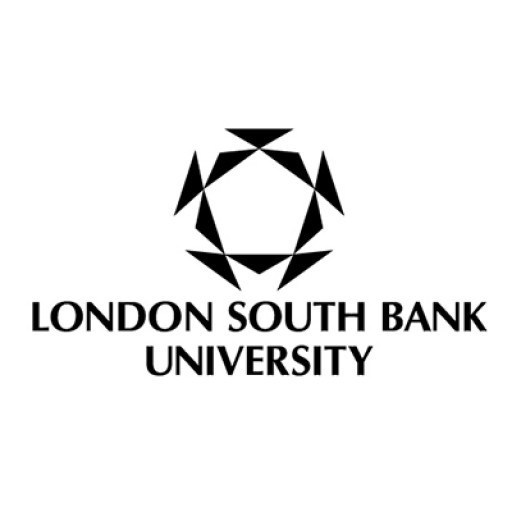Photos of university / #universityofbradford
Program Overview: Archaeological Sciences at the University of Bradford
The Archaeological Sciences degree at the University of Bradford offers students a comprehensive education that combines traditional archaeological methods with scientific techniques to understand and interpret the human past. This interdisciplinary programme is designed to equip students with a broad range of skills, spanning excavation, artefact analysis, environmental sampling, and laboratory analysis, ensuring they are well-prepared for careers in archaeology, heritage management, conservation, and research. The curriculum integrates theoretical knowledge with practical experience, providing hands-on training in archaeological excavation, survey techniques, and the use of advanced scientific instrumentation such as GIS, remote sensing, radiocarbon dating, and material analysis.
Throughout the course, students explore a variety of themes including human evolution, ancient societies, cultural heritage, and conservation practices. The programme emphasizes the importance of scientific investigation in archaeology, enabling students to analyze archaeological finds with techniques such as microscopy, spectroscopy, and chemical analysis. This approach allows for more precise dating, provenance studies, and understanding of ancient technologies and material use.
The programme is designed with flexibility to accommodate students with diverse interests and career goals. It includes modules on archaeological theory, field methods, archaeological science, and digital archaeological data management. Students have opportunities to participate in field schools, excavation projects, and research internships, often supported by partnerships with museums, archaeological organisations, and research institutes. These practical components are complemented by lectures, seminars, and workshops delivered by experienced academics and industry professionals.
With a strong focus on research, students are encouraged to undertake independent projects and contribute to ongoing archaeological research initiatives at the university. The programme prepares graduates with the knowledge, technical skills, and critical thinking necessary for careers in archaeological research, consultancy, heritage management, and conservation. Additionally, graduates develop transferable skills such as problem-solving, teamwork, and communication, valuable in numerous professional contexts.
Students benefit from state-of-the-art facilities, including dedicated archaeological laboratories, survey equipment, and access to digital archiving resources. The university’s location offers proximity to rich archaeological sites and heritage assets, providing excellent opportunities for fieldwork and real-world experience. Upon graduation, students are well-positioned to pursue further research, advanced degrees, or professional careers in archaeology, cultural heritage, environmental science, or related fields.
Overall, the Archaeological Sciences programme at the University of Bradford offers a unique blend of scientific inquiry and archaeological practice, preparing students to contribute meaningfully to our understanding and preservation of human history and cultural heritage.
The programme is normally offered on a full-time basis but a part-time route is feasible as well. Individual modules are available to candidates wishing to enhance their specialist knowledge in a particular area. All module information is for 2019 entry, and is subject to change.
Modules
Core:
- Archaeometry (ARC7035-B)
- Professional Development (ARC7041-B)
- Nature of Matter and Instrumental Analysis (ARC7045-B)
- FLS Analytical Elective*
- Dissertation (ARC7034-E)
Option:
- Analysis of Human Remains (ARC7008-B)
- Plants and Animals in Past Societies (ARC7046-B)
- Archaeological Prospection and Visualisation (ARC7044-B)
- Grave Concerns: Investigating the Archaeology of Death and Burial (ARC7036-B)
- Site Evaluation Strategies and GIS (ARC7048-B)
*FLS Analytical Elective module is drawn from existing modules within the MSc Analytical Sciences and the exact choice is flexible depending on availability and student interests. It will typically be one of CFS7027-B Separation Science and Mass Spectrometry, CFS7030-B Spectroscopy, CFS7028-B Imaging, CFS7026-B Solid Analysis.
We welcome applications from all potential students and most important in the decision to offer a place is our assessment of your potential to benefit from your studies and of your ability to succeed on this particular programme. Consideration of applications will be based on a combination of formal academic qualifications and other relevant experience.
The standard entry requirements for the programme are:
- A first degree in Archaeology or another relevant discipline, normally with a second-class degree or higher or equivalent for UK students
- Applications are welcome from students with non-standard qualifications, and mature students (those over 21 years of age on entry) with significant relevant experience
- Admission will be judged on an individual basis of overseas students, at an equivalent level to UK entry requirements
- For North American students normally a GPA of at least 2.5 on a scale of 4.0 is required, or an equivalent
Admissions are made on the basis of demonstrated ability, qualifications, experience, references, and, occasionally, interviews. A completed application form, references, official transcripts, or a list of programmes/modules and grades/marks stamped by your undergraduate department or student registry are required of all applicants.
Recognition of Prior Learning
If you have prior certificated learning or professional experience which may be equivalent to parts of this programme, the University has procedures to evaluate and recognise this learning in order to provide applicants with exemptions from specified modules or parts of the programme.
English language requirements - If English is not your first language you must have IELTS at 6.0 or the equivalent, with no less than 5.5 in each sub test. If you do not meet the IELTS requirement, you can take a University of Bradford pre-sessional English course
MSc
Home/EU: £8,160
International: £18,940
PGDip
Home/EU: £6,530
International: £18,250
You will use a wide range of specialist facilities and collections, including geophysical survey, 3D visualisation, image analysis, materials investigation, botanical and faunal analysis and the largest collection of human skeletal remains in any UK archaeology department, over 4,000 skeletons, dating from the Neolithic to the 19th century.








